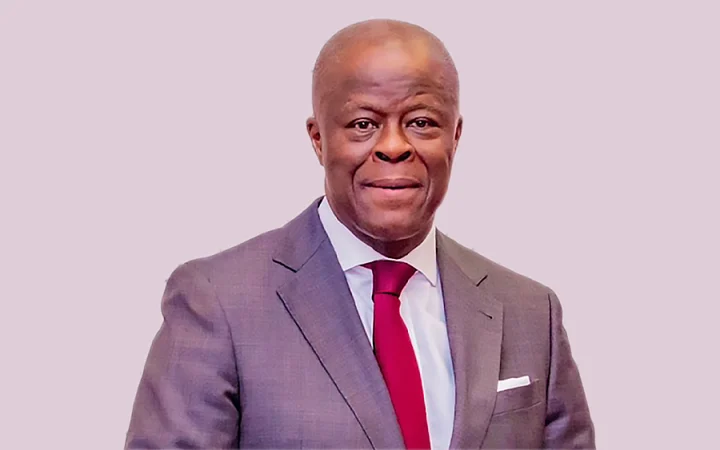Nigeria’s Minister of Finance and Coordinating Minister of the Economy, Mr. Wale Edun, has urged commercial banks to expand their support beyond large corporations and prioritize innovative ventures, startups, and small-scale entrepreneurs as part of efforts to drive inclusive economic growth.
Speaking at an economic policy forum in Lagos, Edun emphasized that the nation’s financial sector must shift focus from its traditional lending patterns, which largely favor established corporations, to include innovative enterprises and digital entrepreneurs that are key to unlocking Nigeria’s growth potential.

“The era of concentrating financial resources on a few large corporate entities must give way to an economy that nurtures innovation, creativity, and inclusion,” Edun said. “Banks must recognize that supporting new ideas, small businesses, and technology-driven solutions is just as critical to national development as financing big projects.”
Edun noted that Nigeria’s innovation ecosystem, which has produced globally recognized startups in fintech, e-commerce, and agritech, remains largely underfunded despite its potential to create jobs and boost productivity. He stressed that access to credit remains one of the biggest challenges for entrepreneurs, particularly in emerging sectors.
According to him, banks must develop new financing models that can accommodate innovative ventures with non-traditional collateral structures, such as intellectual property or technology-based business assets. “We need to rethink what qualifies as value in today’s economy,” he said. “Ideas, data, and innovation are now major drivers of economic growth and must be treated as such in our financial system.”
Edun reaffirmed that the federal government is committed to fostering an enabling environment where innovation can thrive, adding that policy reforms under President Bola Tinubu’s administration are aimed at improving access to finance, reducing business costs, and strengthening investor confidence.
He highlighted initiatives such as the Renewed Hope Infrastructure Fund, Presidential Fiscal Policy and Tax Reforms Committee, and ongoing efforts to improve ease of doing business as part of broader economic reforms designed to empower the private sector.
“Through the fiscal and monetary alignment we are pursuing, we aim to ensure that capital flows where it is most needed — to the productive sectors, to innovators, and to those who create jobs,” the minister explained.
Industry analysts have long argued that Nigeria’s financial system, though robust, remains overly conservative in lending practices, with a strong bias toward low-risk corporate borrowers. This approach, they say, limits capital access for small and medium-sized enterprises (SMEs) and stifles the development of a truly diversified economy.
Recent data from the Central Bank of Nigeria (CBN) shows that over 70% of credit extended by Nigerian banks goes to large corporates, leaving only a small fraction for SMEs and startups. Experts say this imbalance hampers innovation and reduces the economy’s ability to respond to global technological shifts.
In his remarks, Edun also called for banks to work more closely with the government in designing financial products that address the specific needs of small-scale entrepreneurs. He proposed collaborative financing models involving the government, banks, and venture capital firms to mitigate risks associated with startup lending.
“The government can provide partial guarantees, while banks and investors bring the capital and financial expertise,” Edun suggested. “That way, we can de-risk innovation and ensure that even the smallest entrepreneurs have a fair chance to succeed.”
He further urged financial institutions to invest in digital transformation, arguing that technology-enabled banking could expand financial inclusion and reduce the cost of lending to underserved communities. “Fintechs have shown us that digital tools can democratize finance,” he said. “It’s time for traditional banks to build on that success and take it further.”
The minister also stressed the need for banks to support Nigeria’s transition to a digital economy by funding technology startups, renewable energy solutions, and creative industries. He noted that such investments would not only diversify the economy but also strengthen resilience against global economic shocks.
Edun’s comments come at a time when Nigeria is seeking to attract more foreign investment into its innovation-driven sectors. The federal government has pledged to implement tax incentives and credit support for startups as part of its national economic blueprint for 2026.
In response to Edun’s remarks, several bank executives at the forum agreed on the need to deepen financial inclusion and rethink credit structures. However, they also highlighted challenges such as regulatory uncertainty, high inflation, and exchange rate volatility as barriers to long-term lending to small businesses.
Despite these challenges, Edun maintained that Nigeria’s economic recovery efforts depend on inclusive financial practices and bold support for innovation. “We cannot build a 21st-century economy on 20th-century banking principles,” he concluded. “Innovation is the bridge between potential and prosperity — and banks must be at the forefront of building that bridge.”
Support InfoStride News' Credible Journalism: Only credible journalism can guarantee a fair, accountable and transparent society, including democracy and government. It involves a lot of efforts and money. We need your support. Click here to Donate
